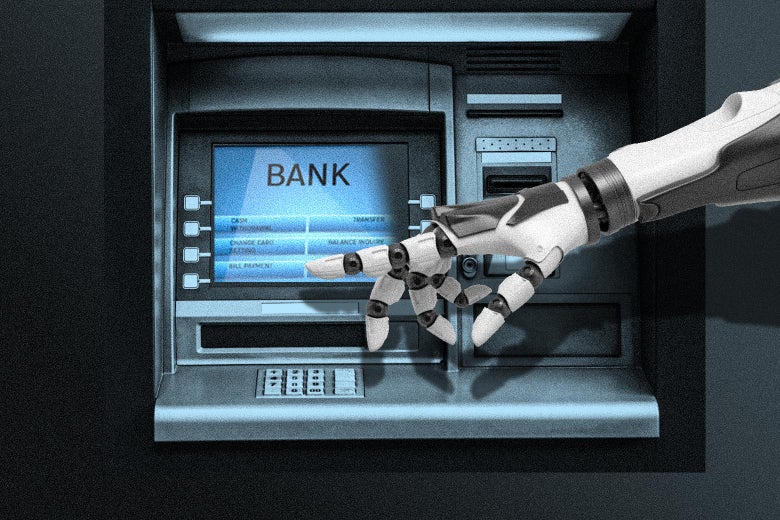Why We Shouldn’t Want Banks to Go All In on Artificial Intelligence
- by 7wData

Banks love to brag about how many data scientists they’re hiring and their shiny machine-learning “centers of excellence.” In the 2018 JP Morgan Chase annual report, CEO Jamie Dimon said the company had gone “all in” on artificial intelligence, adding that artificial intelligence and machine learning were “being deployed across virtually everything we do.” Not to be outdone, HSBC has opened multiple “data and innovation labs” around the world, in order to build artificial intelligence tools that can take in the bank’s more than 10 petabytes of data. Citigroup, Bank of America, and Capital One also boast about their artificial intelligence capabilities, particularly to their would-be investors.
Of course, some of this is hype: Banks believe they can get a certain brand patina from looking and acting like tech companies. But as Oxford technologist Nick Bostrom points out, artificial intelligence technology has the potential go from staggeringly dumb to effectively omniscient rather quickly. The fact that your bank’s chatbot seems pretty lame is no reason to write off what Wall Street is capable of. A report published this month by the Bank of England finds that two-thirds of U.K. banks already use machine learning or artificial intelligence to run their business. The report is one of first instances of a regulatory agency systematically documenting the widespread adoption of machine learning and artificial intelligence in banking. (U.S. regulators haven’t published similar findings, but it’s clearly happening on a comparable scale here.)
“Machine learning” and “artificial intelligence” aren’t precise terms—the BOE describes artificial intelligence broadly as the development of “computer systems able to perform tasks that previously required human intelligence,” and considers machine learning to be a subcategory of A.I. that recognizes patterns in data. So when banks highlight their machine-learning prowess, they’re sometimes puffing up their bellies about statistical methods that have been used broadly for decades. It can be fun to make fun of stodgy banker-types for donning hoodies, embracing “disruption,” and trying to outbid Google and Facebook to hire artificial intelligence experts, but the real risk to society isn’t that banks fail at A.I. It’s that they succeed—and customers lose.
As the BOE explains, “machine learning” isn’t always substantially different from the statistical models banks have used for decades, like the credit scores they develop to predict the likelihood a customer will default on a loan, or the models bank use to predict whether a particular debit or credit card transaction was fraudulent. But that doesn’t mean this is just business as usual. Banks aren’t making real advances, substantially growing the size of the information asymmetry and gap in bargaining power between banks and consumers. The tricky thing about incremental “innovation” is that society runs the risk of iterating and iterating on our slingshots until we’re left holding machine guns. The world’s largest banks have been consistently disappointing stewards of public trust. As they become experts at predicting, and in turn, influencing human behavior, you can bet your bottom dollar they’ll apply that expertise in unsavory ways. After all, the fact that both bank profits and credit card interest rates are at record highs is a telling hint that the benefits of machine learning in finance aren’t translating into lower prices for consumers.
[Social9_Share class=”s9-widget-wrapper”]
Upcoming Events
Shift Difficult Problems Left with Graph Analysis on Streaming Data
29 April 2024
12 PM ET – 1 PM ET
Read MoreCategories
You Might Be Interested In
Outsmarting Cancer in the Age of AI: AI is dramatically shortening the timing and improving…
21 Dec, 2019Physical exercise had always been one of her daily “must-dos,” and Gina set out on her daily seven-mile walk with …
Data scientists have access to your sensitive data—that’s driving more schools to teach ethics
4 Mar, 2022What obligation do data scientists have to be good stewards of the data they’re collecting and analyzing? This type of …
Do You Really Need a Big Data Strategy?
28 Jun, 2017With increasing frequency, CIOs are being asked by their senior management, “What’s our big data strategy?” But do you really …
Recent Jobs
Do You Want to Share Your Story?
Bring your insights on Data, Visualization, Innovation or Business Agility to our community. Let them learn from your experience.
Privacy Overview
Get the 3 STEPS
To Drive Analytics Adoption
And manage change




